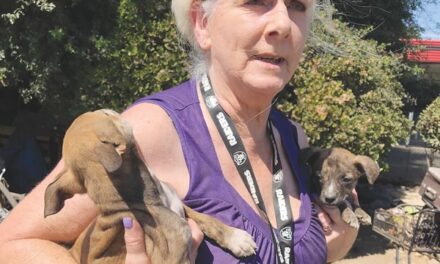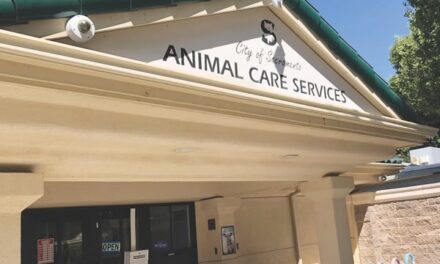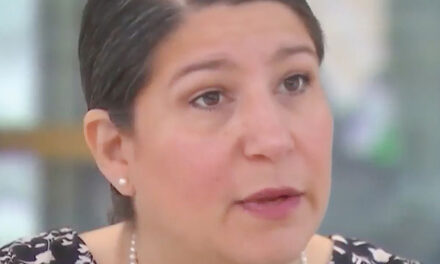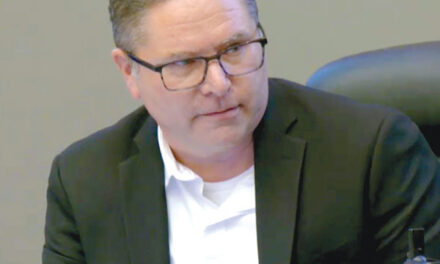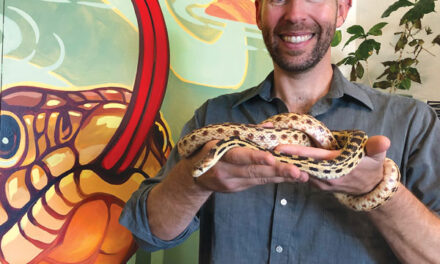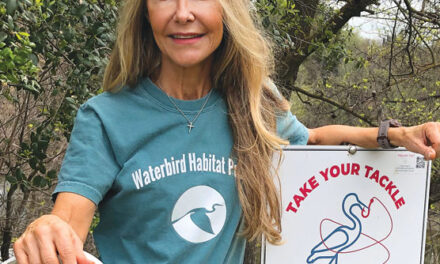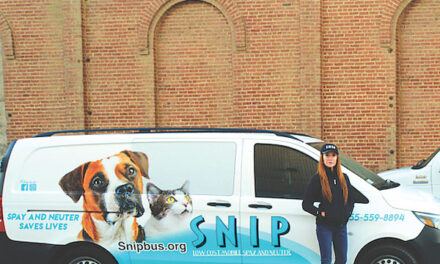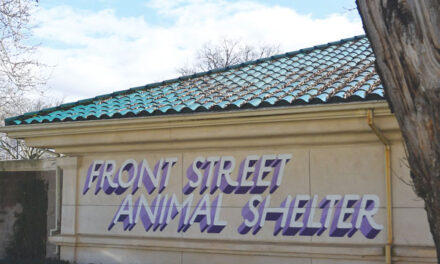Launched in December, PAWS is a free spay/neuter veterinary outreach clinic for pets owned by unhoused people.
“PAWS is the first mobile clinic of its kind in the area,” says Luna Anona, spokesperson for the county’s Bradshaw Animal Shelter. “Offering vital veterinary care on the go, the clinic’s foremost focus is spaying and neutering as many pets as possible.”
That’s where Bradshaw’s effort differs from other mobile vet services, including Front Street Animal Shelter, Elica Health Centers and Street Dog Coalition. These free clinics offer basic care, such as vaccinations, flea prevention and microchipping.
PAWS performs no-cost spays and neuters on the spot.
“I had no idea the clinic was going to be here,” Rival says. “I took my dog up and they said, ‘We can neuter him for free.’ I said, ‘Go ahead.’” Rival was on his way to a job interview. “They took care of him until I got back.”
The mobile clinic is in the field two to three days a week, traveling to locations where the need is greatest. This includes the Florin Road Safe Stay, where 33 homes have pets, and the East Parkway Safe Stay, with 15 animals.
“We will come around to a certain location every two weeks until we have saturated that area, then we put them on a monthly rotation,” says Dr. Cynthia Metcalf, PAWS full-time veterinarian.
It’s tight in the 7-foot-wide trailer, but space is efficiently used. Each kennel can house one large dog or be divided for two smaller animals, up to 12. When not in use, a large dog scale slides under the kennels. A tiny closet serves as storage and bathroom.
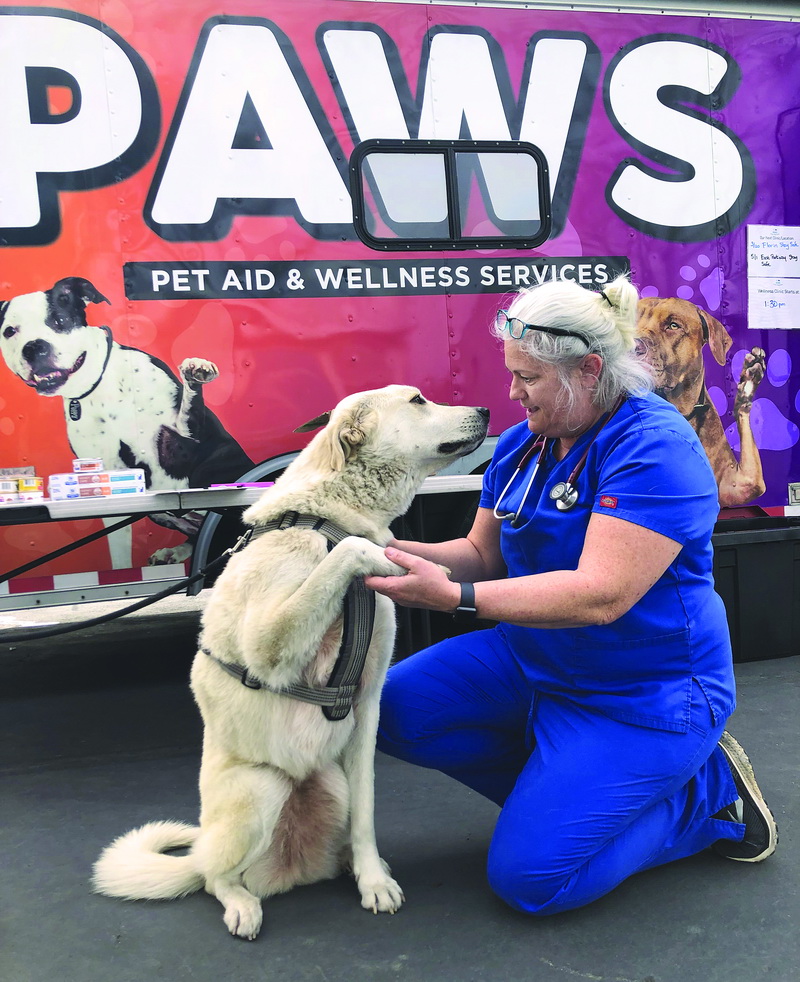
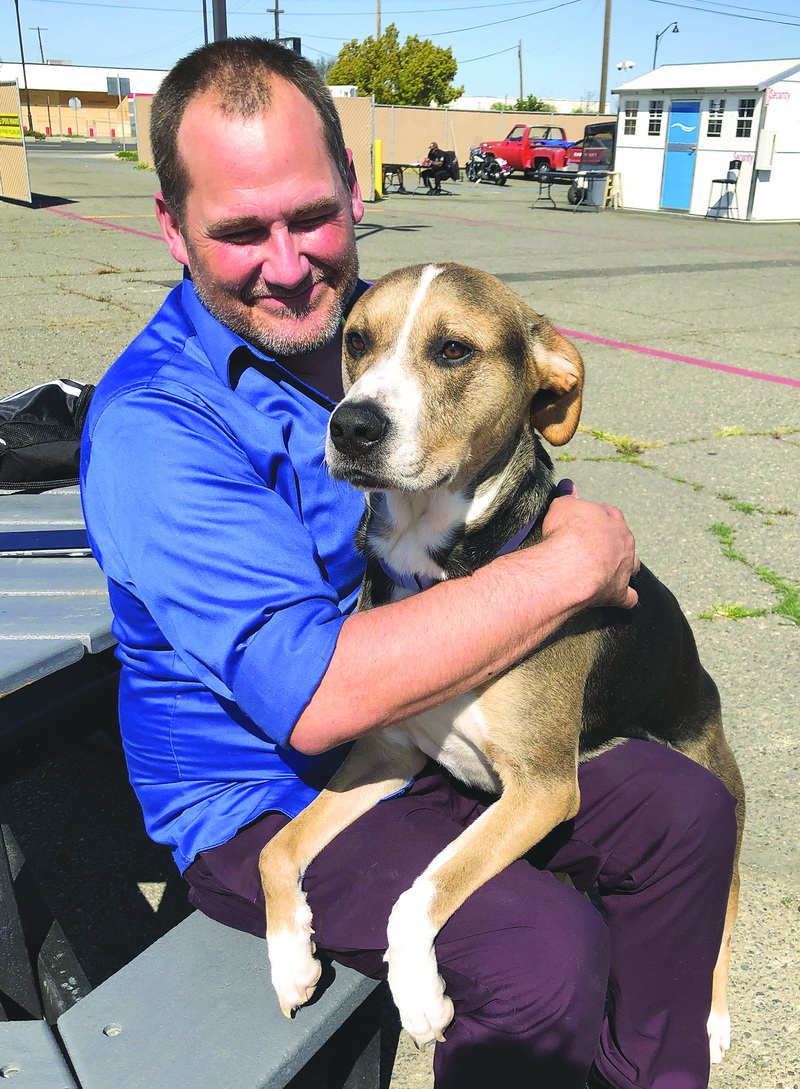
For spays and neuters, which begin at 8:30 a.m., “seven surgeries are probably the max we can do in a day,” says Metcalf, who works with two registered veterinary technicians.
The clinic books three to four surgeries per visit. The rest are walk-ups. “We want to be able to get the population that is right there at the moment,” Metcalf says. “Not everybody has access to a phone or internet” for appointments.
While spay/neuter patients recover from surgery, PAWS offers an afternoon wellness clinic with vaccinations, flea prevention, microchipping and basic medical care. A mini pet pantry dispenses food and supplies.
“We prioritize juvenile animals that have never had vaccines and really sick animals,” Metcalf says.
With the exception of specialized surgeries, PAWS can provide the same services as a traditional vet, including lab work and diagnostics.
The surgery room at the back of the 18-foot-long trailer is equipped with electrocardiogram and anesthesia machines. A centrifuge spins blood samples to assess red blood cell counts. A microscope lets Metcalf check cells for cancer.
A handheld ultrasound scans for pregnancies and problems such as bladder stones. The vet views the images on her phone.
Clients don’t need proof of homelessness. “I don’t want to retraumatize people by asking them ‘Are you living on the street? Are you living in a tent?’ There is no judgment,” Metcalf says.
PAWS is a passion for Metcalf whose father, a Vietnam veteran, was diagnosed with schizophrenia and became homeless. “I know what it’s like to have a family member who has been unhoused, and I know how important our family dog was to him and how their bond helped him, so this program really resonates with me.”
The mobile clinic is sponsored by Sacramento County with $400,000 in federal funds from the American Rescue Plan Act. PAWS was also awarded a $100,000 grant through UC Davis Koret Shelter Medicine program.
By mid-March, PAWS performed 94 spay/neuter surgeries, treated 251 pets at the wellness clinic and performed eight procedures, including mass removals.
“We are in full swing,” Metcalf says. “The response from the community has been amazing. We are lucky that the county gave us the opportunity to do this work. I wouldn’t be any place else.”
Cathryn Rakich can be reached at crakich@surewest.net. Follow us on Facebook and Instagram: @insidesacramento




